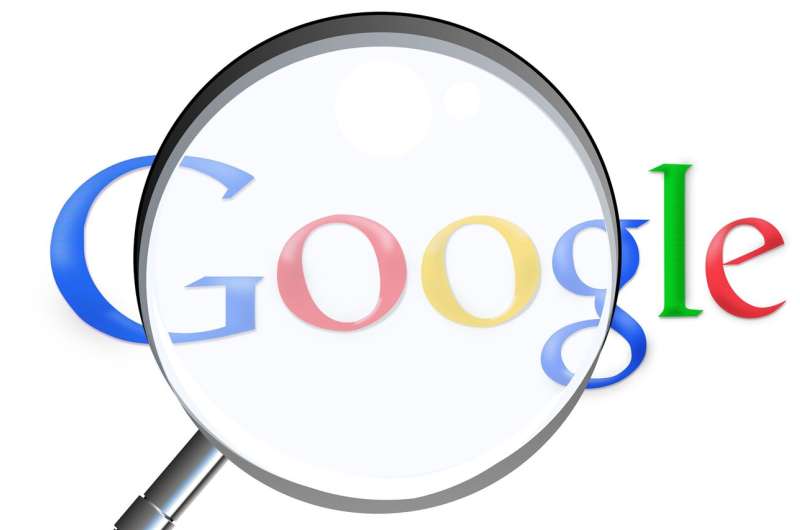Credit: Pixabay/CC0 Public Domain
Hillsborough Mayor Jenn Weaver says her Orange County town will welcome Google Fiber—though perhaps not the construction that comes with it.
"The community really needs to just prepare ourselves for a lot of disruptions," she said. "There's going to be hiccups. This is what we've seen from our neighboring communities that have gone through this. We just need to tough it out, and it will be worth it on the other side we hope."
In March, Hillsborough became the third Triangle town in the past year to announce the arrival of Google Fiber, the tech giant's fiber optic connection that promises considerably faster speeds than traditional broadband. Following a period of little to no expansion, Google says it's been extending its local network at a considerable pace.
"In the past year, we've launched construction in Garner and Apex, and Hillsborough just announced," said Jess George, head of government and community affairs for Google Fiber's East region. "We've continued to construct in Raleigh and Durham and have largely completed Morrisville, Cary, Chapel Hill and Carrboro."
Google Fiber entered the Triangle in 2015 with much fanfare, unveiling its plans for the region and Charlotte with T-shirts and the hashtag #FiberIsComing. Some politicians predicted the service would transform both areas.
Today, many still see fiber-optic internet as the gold standard.
"Fiber is the most future-proof of all the technology coming to the house," Mark Johnson, a broadband consultant in the Triangle area, told The News & Observer last summer. "I think people are looking for alternatives to the incumbent providers who routinely are among the lowest rank (in) customer satisfaction of any businesses."
Compared to AT&T and Spectrum, Google offers the more affordable gigabit plans, charging $70 a month for speeds up to 1-gigabit and $100 monthly for 2-gig service.
But laying Google Fiber is an intensive process that requires digging to create enough space to pull fiber-optic cable through empty pipes. When Google and AT&T were setting their fiber optic lines in 2015, neighbors across the Triangle complained contract workers commonly hit their gas, water and sewage lines.
After making initial progress, especially in Cary and Morrisville, Google paused its expansion.
"We had a lot to learn about how to construct fiber optic networks in multiple municipalities," said George, who called the company's original construction approaches overly disruptive, expensive, and time-consuming.
"If we have a vision for fiber-optic ubiquity across this country, we needed to rethink how we construct," she said. "So essentially, we took a step away from active construction. The Triangle is actually one of the few places where we continued to construct the entire time, just at a slower pace."
In the past year, Google Fiber has ramped back up.
According to BroadbandNow, a research group that compiles internet service provider data, Google Fiber in August was only available to 15.4% of Raleigh residents and 6.7% of Durham residents. But today, the site says it is available to nearly half of Raleigh and about 18% of Durham residents. Rates are higher in Cary (78.7%) and Morrisville (77.9%).
Google Fiber called BroadbandNow's data "out of date" but would not share its numbers publicly.
BroadbandNow pulls data from the Federal Communications Commission, which releases information on a 16-month delay. The group says it corrects for this lag with proprietary data sent by internet service providers.
How Google picks where to expand
When it comes to expanding its fiber optic network, George said Google strives to make decisions that are "engineering-led, not led by our sales team."
The Triangle's rapid growth, she noted, has stalled development in some neighborhoods because municipalities had already issued permits for other projects.
"We've often heard from folks ask, 'Why are you constructing in town A, B, C, when you haven't finished mine?'" George said. "We're trying to be responsible about having a metered cadence with a municipality that's not overburdening their ability to permit, overburdening a community with too much construction."
On its website, Google Fiber acknowledges "construction can be disruptive."
George said Google Fiber has advanced its techniques around "shallow construction," in recent years to minimize utility strikes and installation times.
Natural geography and physical infrastructure also present barriers to extending underground fiber networks. George said this can delay expansion to some lower-income neighborhoods that have historically been separated by railroad tracks.
"It's important to (build in these areas) when we're thinking of digital equity," she said.
2023 Kaiser Health News.
Distributed by Tribune Content Agency, LLC.























